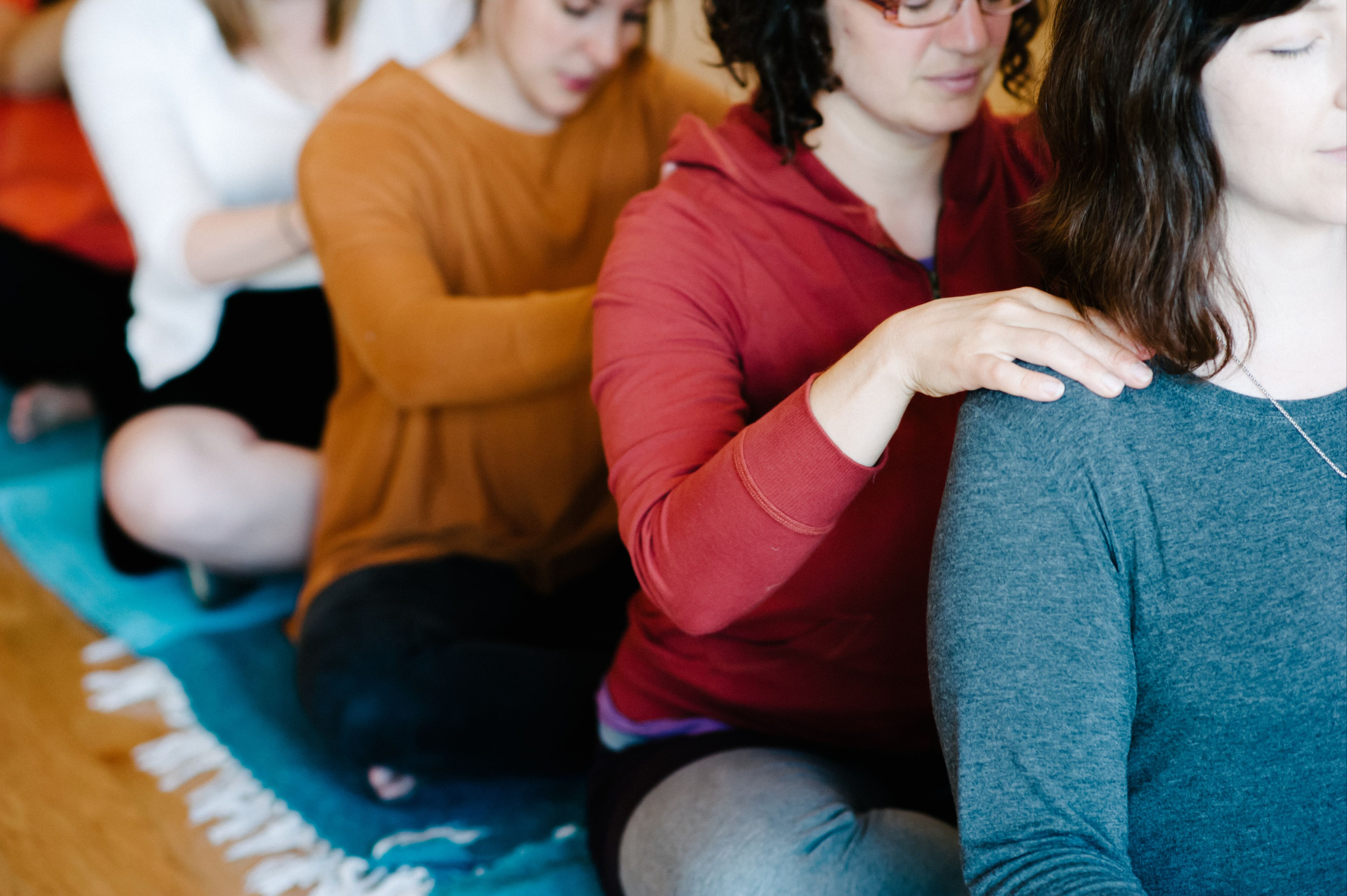The Limits of Self-Regulation in Labor And the Power of Good Support
Jun 29, 2025
In recent years, there has been a growing focus on “self-regulation” in the context of birth. Articles, classes, and social media posts often emphasize the importance of learning to “stay calm,” “stay in control,” or “stay regulated”, or "relax" during labor. While these skills can be valuable at certain moments in labor, it’s important to acknowledge the limits of self-regulation, and the essential role of good support in the birth space.
Birth is an experience that is fundamentally unpredictable and inherently intense. While preparation and personal coping strategies matter, expecting someone to self-regulate their way through every wave of labor alone can set up unrealistic expectations and, in some cases, feelings of failure or inadequacy when things feel overwhelming.
Why Self-Regulation Isn’t the Whole Story
Self-regulation refers to our ability to notice and influence our own emotional and physiological states. In labor, practices like rhythmic movement, visualization, and vocalizing can help shift us toward more ease or focus and can help navigate pain, fear, or moments of uncertainty.
However, self-regulation does not occur in a vacuum. Our ability to regulate is shaped by our environment, our relationships, our history, and our immediate sense of safety. In the midst of labor, when sensations intensify and we are functioning primarily from the limbic brain, our usual strategies can be both challenging or at times, inaccessible.
Even outside of birth, self-regulation is not always the ideal or even the most helpful response. Our nervous systems are designed for co-regulation. This is the process of finding a sense of safety and regulation through connection with others. We are social creatures, wired to respond to soothing voices, gentle touch, reassuring presence, and attuned companionship.
The Power of Good Support
Good support in labor is not just about having a support person, its about the quality of that presence. A supportive companion; whether a partner, doula, friend, or family member; offers non-judgmental attention, attunement, and emotional steadiness.
A well-supported birthing person doesn’t need to rely solely on their internal resources; they can lean into the relational support being offered. This might look like a hand to hold, eye contact that conveys “I’m here with you,” or a calm voice that mirrors and softens intense moments.
Good support can also help create and maintain a sense of safety. This safety is not just about physical conditions or medical monitoring, it’s also about emotional safety: feeling seen, respected, and not alone.
When "Stay Calm" Becomes a Burden
The cultural emphasis on “staying calm” or “being in control” can unintentionally create shame if a birthing person feels afraid, cries out, or needs more help than they imagined. Labor often brings up powerful emotions like grief, fear, vulnerability, even joy so big it feels overwhelming.
Trying to force oneself into a calm or “regulated” state at all times can actually interfere with the natural process of labor, which sometimes needs expressive sounds, movement, and moments of surrender rather than control.
A More Realistic and Compassionate Framework
Rather than focusing exclusively on self-regulation as a goal, we can shift toward a more compassionate framework: one that includes self-awareness and internal coping tools and recognizes the central importance of external support.
We can ask:
-
Who will be with you, and how can they support you in a way that feels good to you?
-
What helps you feel most connected to yourself and to those around you?
-
How can we prepare partners and support people to offer meaningful, attuned presence?
When we recognize that regulation is not only an individual responsibility but also a shared, relational process, we open up more space for kindness, flexibility, and resilience in birth.
In fact, the level of support you experience may be the most important variable for the birth you are hoping for.
The Invitation
Birth is not a performance of perfect calmness or control. It is a profound, complex, and intense experience. In this space, inner resources matter, but without the scaffolding of attuned labor support, they can feel inaccessible.
If you’re interested in exploring these nuances further, I invite you to connect with the courses and professional trainings I offer. Together, we can move beyond simplified narratives toward a more integrated, relational understanding of birth support.
Thanks for following along!
Stay connected with news and updates!
We hate SPAM. We will never sell your information, for any reason.





